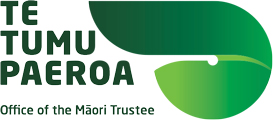Tax and finance
There are a number of financial obligations trusts need to meet. It’s important that trustees gather all the information they need to ensure the tax obligations of the trust are met.
If you’re unsure about what your personal or trust obligations are for tax purposes, we recommend you talk to a Kaitakawaenga Māori at Inland Revenue on 0800 227 774.
Māori Authority taxable distributions
When your whenua earns an income, tax is paid by the trust on that income. If you receive a trust distribution from your trust it's important that you are not taxed again on that same income. To avoid this from happening Māori Authority credits are passed on to you as an owner.
To ensure you are not taxed at a higher rate, we need confirmation of your IRD number (and if the owner is a whānau trust, its IRD number).
In some cases, we will also need to confirm the resident withholding tax rate (RWT) for the owner, depending on who is receiving the income.
Tax information
If you’re unsure about what your IRD number is or the correct RWT rate, please contact Inland Revenue and speak to a Kaitakawaenga Māori.
The income summary you receive from us can be used to support your annual income tax return, if you’re required to complete one.
Annual tax certificate
Each year, around May, you’ll receive a tax certificate from us that tells you how much distributable income you received or were owed, and the management fee on this income.
It also shows you how much tax has been withheld and paid to Inland Revenue on your behalf. If you have distributable income we're required to send you a tax certificate.
The amount listed in the tax certificate is the total amount of distributable income for all entities and individuals under our administration.
Your share of distributable income is a share of this total. You can find out more about distributable income here.
